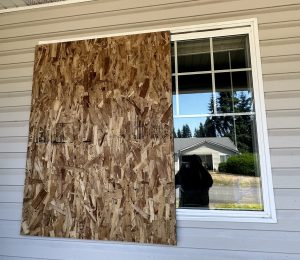
Knowing when to replace your windows can depend on a variety of factors. Here are some signs that it might be time for a replacement:
- Drafts and Air Leaks: If you feel drafts or notice that your home is not as energy-efficient as it used to be, your windows may be letting air escape or enter. You can check for drafts by holding a candle near the edges of the window and seeing if the flame flickers.
- Condensation Between Panes: If you see condensation or fogging between the panes of your double- or triple-pane windows, it usually means the seal has failed and the window needs to be replaced.
- Difficulty Opening or Closing: If your windows are hard to open or close, or if they don’t stay in place, it could indicate problems with the window mechanisms or frame, which might require replacement.
- Visible Damage: Look for physical damage such as cracked or broken glass, rotting frames, or deteriorated sashes. These issues not only affect the appearance but can also impact the window's performance.
- High Energy Bills: If your energy bills are rising and you’re not sure why, old windows might be to blame. Modern windows are designed to be much more energy-efficient than older models, and upgrading can help reduce heating and cooling costs.
- Noise Issues: If outside noise seems louder than it used to be, your windows might not be providing adequate insulation. Newer windows often have better soundproofing features.
- Age of Windows: Windows typically have a lifespan of 15 to 30 years. If your windows are approaching or surpassing this age range, it might be a good idea to start considering replacement.
- Peeling Paint or Rotting Wood: For wooden windows, peeling paint or rotting wood can be a sign of age or water damage. While some of these issues can be repaired, extensive damage might warrant replacement.

